Liberal Arts Grads Are Supposedly Well-Rounded, But How's Their Pay?
Going to a small college doesn't mean a small paycheck

Students at liberal arts colleges (LACs) are more likely to major in the humanities and social sciences relative to students at other colleges, and are more likely to pursue post-bachelor’s degrees.
Students who graduate with liberal arts degrees from LACs earn higher salaries on average than those who graduate with liberal arts degrees from other institutions.
This salary premium may be due to LAC graduates being more likely to have skills in research, communication, and outreach, which are valuable in the careers they choose.
In an age of exploding enrollment rates in computer science and technology-focused majors, what is the value of a liberal arts education? This week, as high school seniors are deciding where to spend the next four years, we explore the characteristics and outcomes of students at liberal arts colleges (LACs).
LACs place a large emphasis on undergraduate education. They offer smaller class sizes compared to larger universities and more opportunities for student-faculty interaction. With a focus on interdisciplinary education, cultural understanding, and civic engagement, LACs prepare students for diverse, meaningful careers.
How many students attend liberal arts colleges? We classify an institution as an LAC if it appeared in US News’ list of National Liberal Arts Colleges. Using Revelio Labs’ HR data on individuals in the US who graduated with a bachelor’s degree in the past five years, we find that 5.3% received their degree from an LAC, relative to 11.4% from a private research university and 45.6% from a public research university. The share of LAC graduates has remained fairly stable over time.

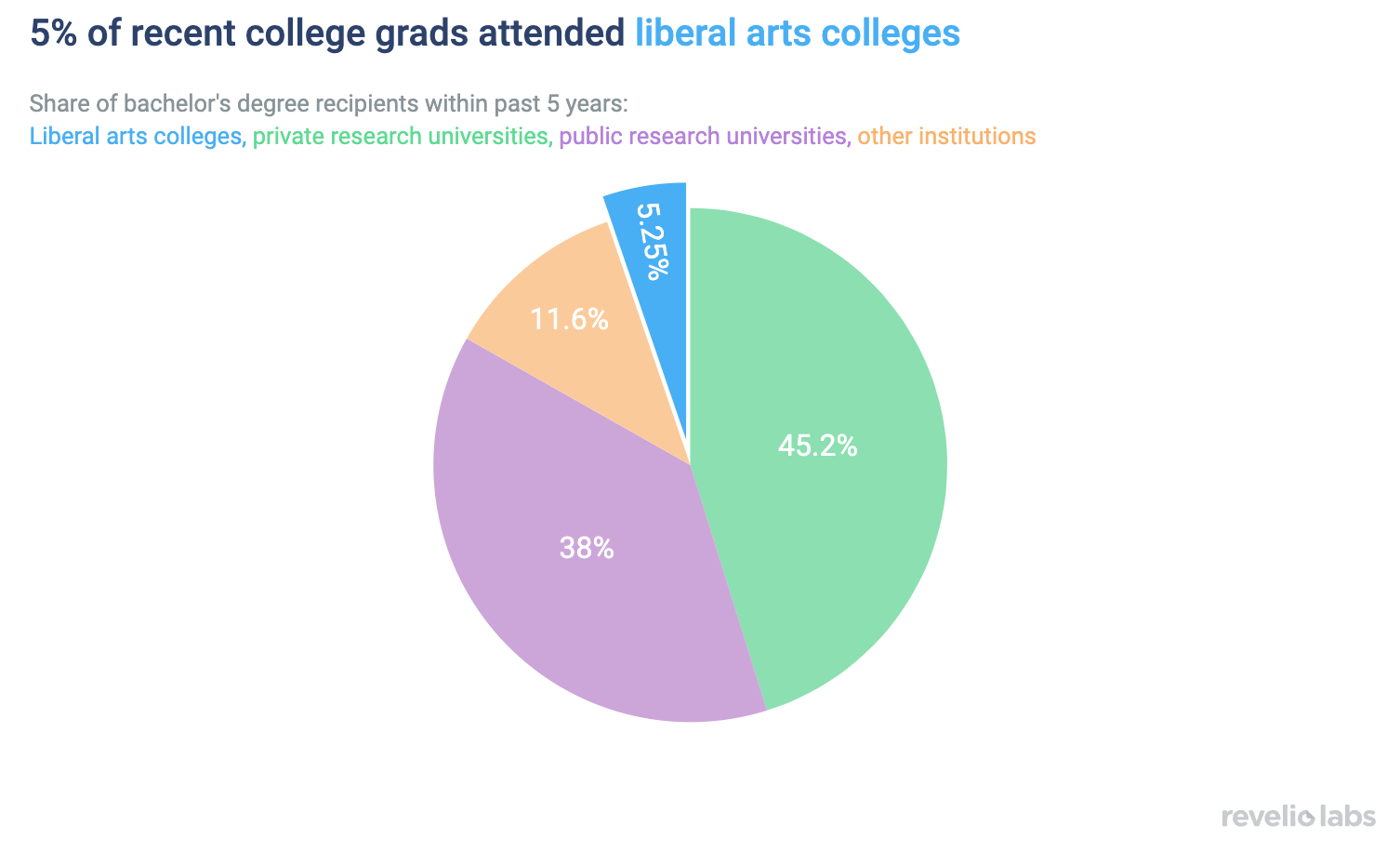
Sign up for our newsletter
Our weekly data driven newsletter provides in-depth analysis of workforce trends and news, delivered straight to your inbox!
Liberal arts colleges prioritize providing students with a well-rounded education, offering a wide range of courses in the humanities and social sciences. Their philosophy focuses on educating students holistically, rather than training them for particular careers. Accordingly, we find that 12.8% of graduates from liberal arts colleges majored in the humanities and 26.6% majored in the social sciences, rates that are 1.25 to 2 times higher compared to students from other institutions. Liberal arts college graduates are also slightly more likely to major in natural science than other college graduates. However, they are less likely to choose CS/engineering and business - majors that tend to be more directly related to specific career paths.

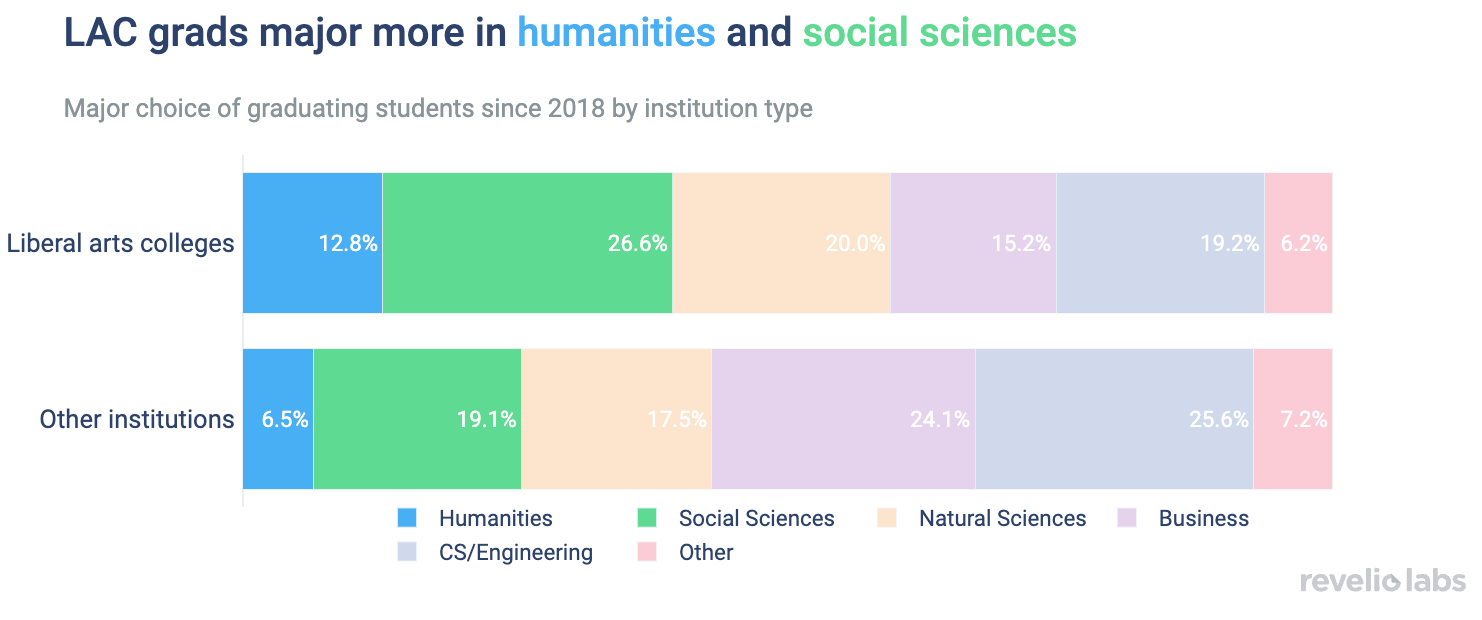
These major choices could be due to a combination of factors: the effect of attending a liberal arts college on students’ preferences, the type of courses offered at each college, and the selection of students who are already social science- and humanities-inclined into choosing a liberal arts education.
How might a liberal arts education influence students’ post-graduation choices? Graduate school is one path: we find that LAC students are more likely to pursue graduate degrees than students from other institutions, with more than 15% of LAC students graduating within the past 5 years entering master’s or MBA programs. Recent LAC graduates also are twice as likely to enter PhD programs compared to other recent grads.
Do smaller class sizes and a greater focus on holistic education pay off when it comes to LAC graduates’ careers? We find that, on average, LAC graduates earn less than graduates from other institutions in their first jobs after college. However, for students in liberal arts majors - i.e., humanities and social sciences - attending an LAC is associated with a salary premium.

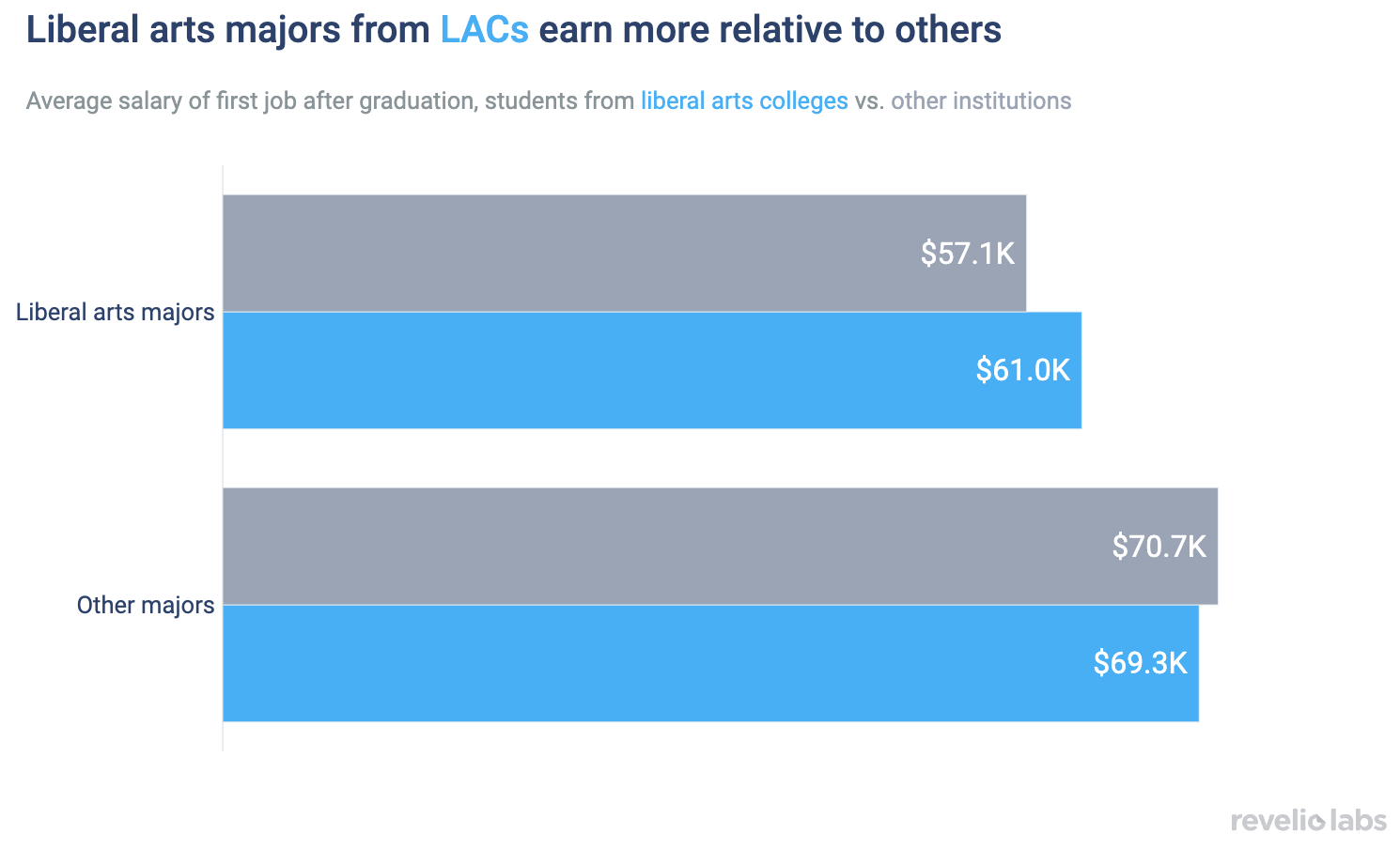
The lower average overall salary of LAC graduates can be explained by the types of jobs they enter. In line with LACs’ emphasis on public service, our HR data shows that their graduates are more likely to enter into service-oriented sectors, which tend to have lower salaries: The share of liberal arts college graduates whose first jobs are in Education and Humanitarian Services are 3.7 and 1.4 percentage points higher, respectively, than the share of graduates from other colleges whose first jobs are in these sectors.

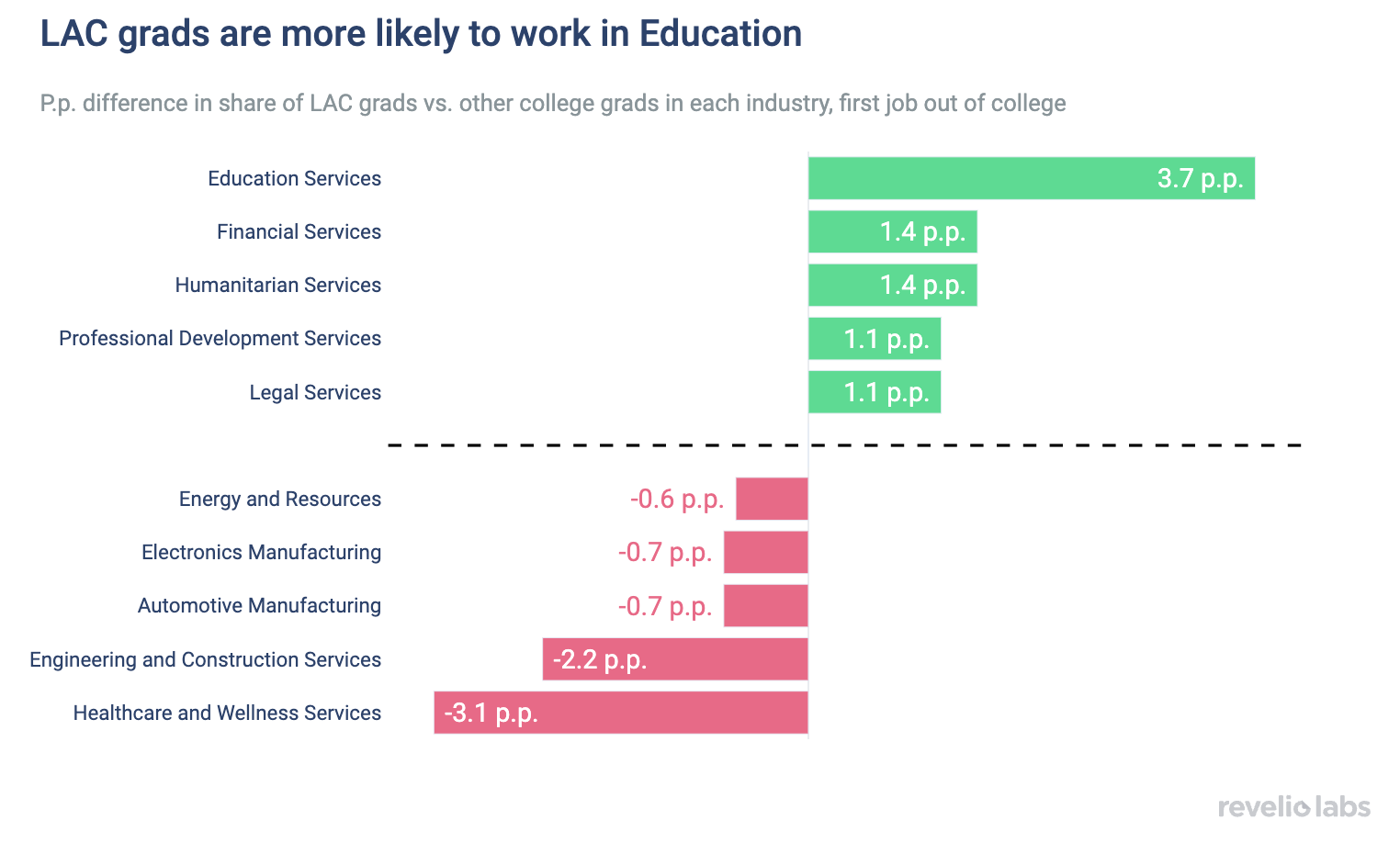
Within these sectors, LAC graduates may be uniquely prepared to excel: They are more likely to report having research, communication, and service-related skills than graduates of other universities, perhaps because of the close faculty interaction and discussion-based classes offered at many LACs. These are exactly the areas that LACs seek to foster in their students.

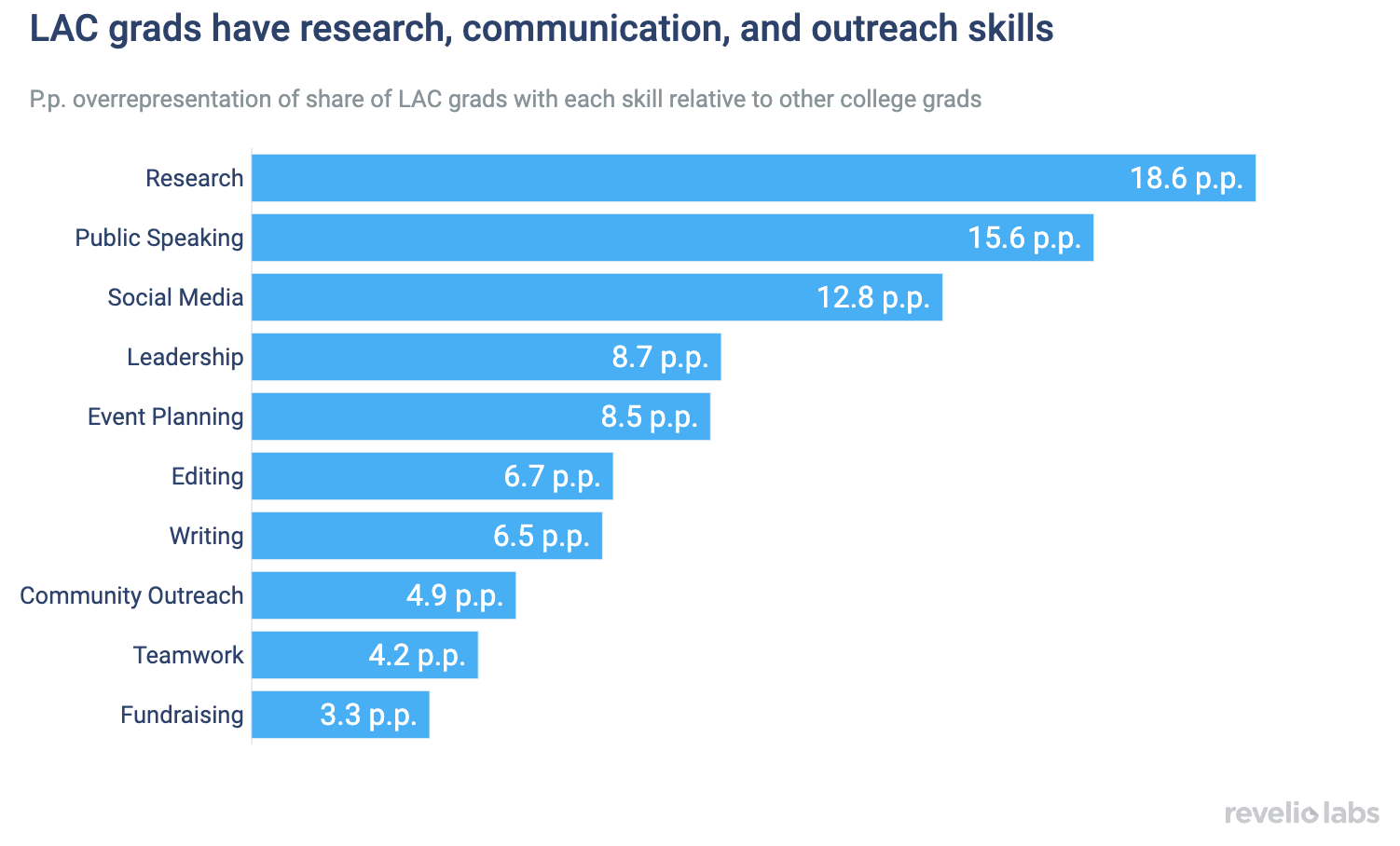
It seems that liberal arts colleges accomplish exactly what they set out to do: provide students with a well-rounded education, expose them to new and diverse ideas, encourage critical thinking, and instill in them a sense of service to their community.


